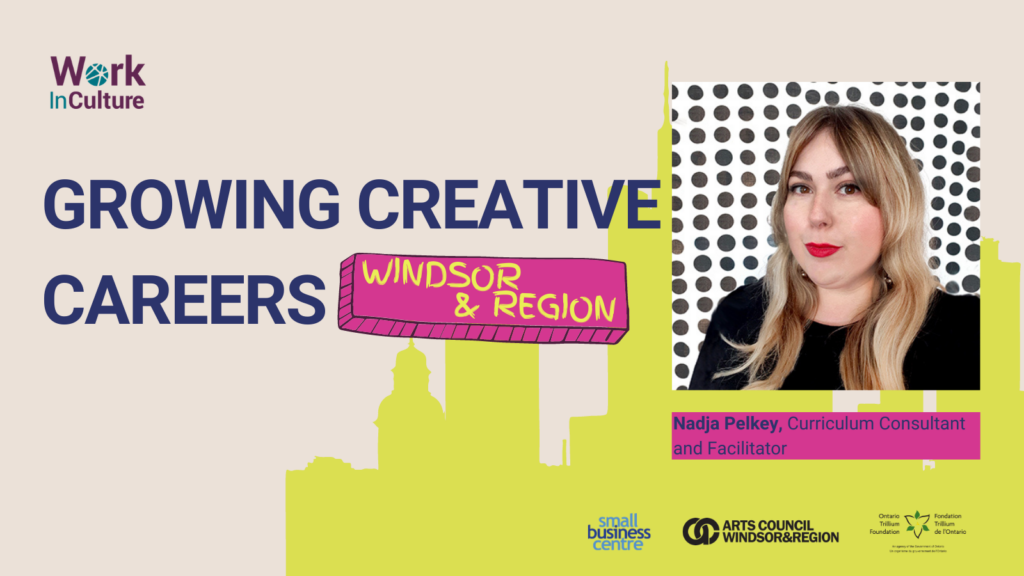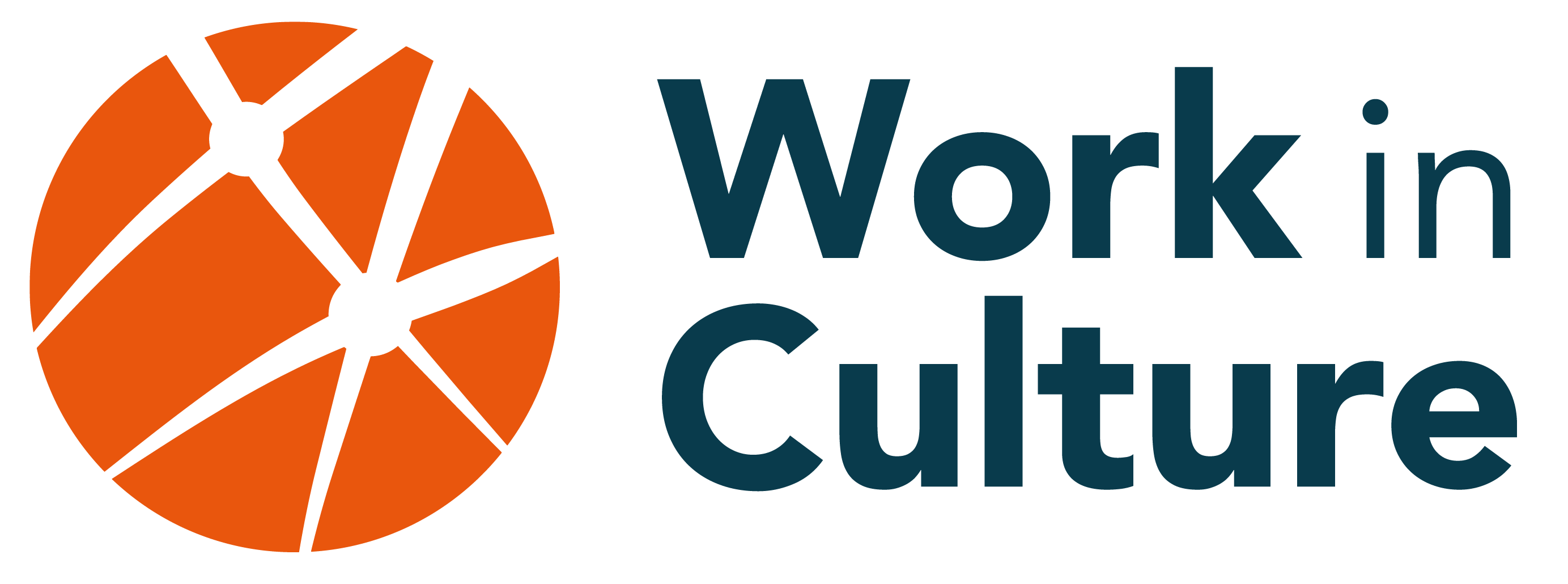
The arts are foundational, it’s how we understand ourselves, and more broadly how we make sense of things. The arts have the capacity to question, examine, articulate, and challenge ideas.
Nadja Pelkey
Our Growing Creative Careers: Windsor & Region project will begin its first cohort sessions at the end of April. It is the first time that Work in Culture is developing and delivering training specifically for Windsor area artists, creatives, and cultural workers.
We are delighted to bring on Windsor-based artist, educator and cultural worker, Nadja Pelkey, to help us build and facilitate this intensive program for the next two years. Nadja has an acute understanding and appreciation of the creative community in Windsor.
Here’s what she had to say about Windsor’s resiliency during the pandemic and how she hopes to contribute to the arts and culture sector in the region.
You were recently hired as the Curriculum Consultant and Facilitator for Work in Culture’s OTF GROW grant project, Growing Creative Careers: Windsor & Region, what excites you about this project?
I have worked extensively in creative education through a number of channels from museum education to delivering workshops in the community and teaching and working at the university and in all those instances my approach and my goals are to support people in developing what it is that they need — whether that be skill-based, resource-based, or otherwise. This program has the capacity to assist individuals and organizations with reflecting on and realizing goals that will strengthen our creative community. Working with WIC and the community partners will not only support participants while engaged in the program but also build on the collaborative infrastructure in this region and point to resources in the community that can offer continued support.
A strong, healthy and supported creative community is vital for the overall health of communities and engaging in that kind of support is exciting to me. This program will span a few years and be able to positively impact different facets of practice for both individuals and organizations. It’s also really exciting to work with partners to identify areas that need support and then be able to craft programs that attend to the needs of the community. We started with a survey, and from the responses we now have a sense of where our creative communities are at, and what they need to be able to help them go further.
If you could go back in time, to when you started out in your artistic career, what advice would you give yourself?
I would tell myself that what’s truly important is a continued engagement, and that everyone’s path and timeline is different.
What positive changes do you see happening in the Windsor area for arts and cultural workers? Can you provide some examples?
This past year has been difficult, and there have been so many challenges for organizations and individuals. It’s also been a time to reflect and consider what is and isn’t serving us and our community.
The arts are foundational, it’s how we understand ourselves, and more broadly how we make sense of things. The arts have the capacity to question, examine, articulate, and challenge ideas.
Some of our organizations have been able to provide programming that is timely and vital. For example…
- Media City’s Oona Mosna worked with curator Greg de Cuir Jr to present Radical Acts of Care, which included Cauleen Smith’s Covid Manifesto.
- One of the City’s bars, Phog Lounge, pivoted to travelling outdoor shows to support musicians left without performance opportunities. In partnership with a local brewery, they created “The Gravy Train” where people can book a musician for a personal outdoor concert while having beer with a meal.
- Our Artist-Run Centre Artcite and the Art Gallery of Windsor have provided rich online programming and opportunities for artists to share their work and processes with the community.
- The Arts Council Windsor & Region has provided COVID specific resources for artists and creatives on their website and worked in partnership with emerging filmmaker, Nola Cooks, to provide a collection of resources for BIPOC filmmakers that are available online.
- Julie Tucker, formerly of the Arts Council Windsor and Region partnered with Kathryn Pasquach, Aboriginal Outreach and Retention Coordinator at the Turtle Island Aboriginal Education Centre at the University of Windsor, as well as Indigenous Student Services at St Clair College, and VUCAVU for We Are Not a Phase: Indigenous Screenings + Talks which was a series of four screenings accessible online. The films covered issues and ideas around community, pride, resilience, memory, and our responsibility to the past and future generations.
While a lot of things have had to be paused or cancelled an incredible amount of work has been done in this region to not only deliver programming that was planned but also to respond directly to what’s happening in the region.
For details about Growing Creative Careers: Windsor & Region: workinculture.ca/programs/growing-creative-careers-windsor-region
